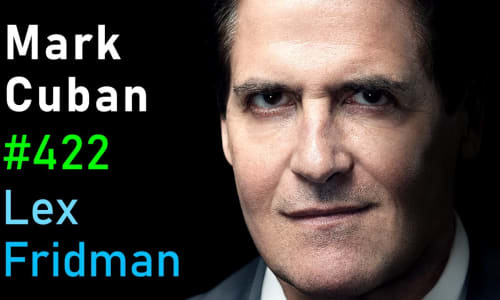See all Lex Fridman transcripts on Youtube

Mark Cuban: Shark Tank, DEI & Wokeism Debate, Elon Musk, Politics & Drugs | Lex Fridman Podcast #422
2 hours 13 minutes 14 seconds
🇬🇧 English

Omnivision Solutions Ltd
- Getting Started
- Create Transcript
- Pricing
- FAQs
- Recent Transcriptions
- Roadmap